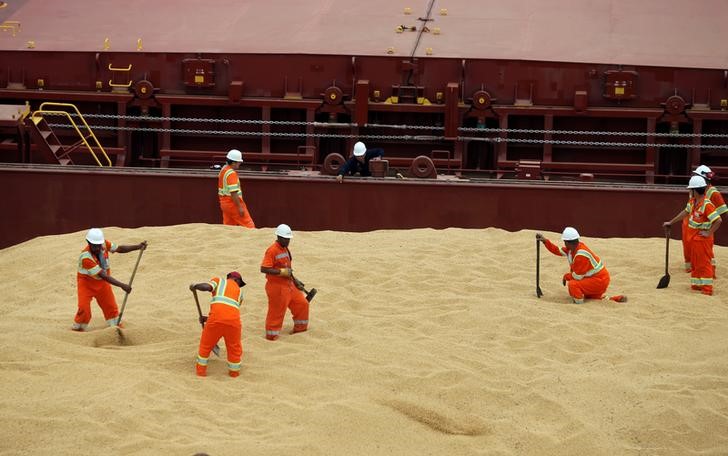(Bloomberg) -- Terms of Trade is a daily newsletter that untangles a world embroiled in trade wars. Sign up here.
China’s promises in its phase-one trade deal to increase purchases from the U.S. -- which experts already were calling unrealistic -- will be even tougher to fulfill now that a new virus is hammering demand and interfering with supply chains.
In the first year of the deal, which takes effect in mid-February, China committed to buy an extra $76.7 billion worth of American goods beyond what it purchased in 2017, and an additional $123.3 billion in the second year. The agreement signed just over two weeks ago marked an easing in tensions that flared as the world’s two largest economies waged a trade war.
As the novel coronavirus spreads, attention is focusing on a part of the agreement which states the U.S. and China will consult “in the event that a natural disaster or other unforeseeable event” delays either nation from complying with the agreement.
“It obviously is going to have some ramifications economy-wide, which we hope will not inhibit the purchase goal that we have for this year,” U.S. Agriculture Secretary Sonny Perdue said Wednesday. “We’ll have to look ahead and see. But the honest answer is we just don’t know yet. But we’re hoping for a very quick conclusion.”
The health crisis has hit financial and commodity markets in recent days.
China’s yuan sank through 7 per dollar Thursday, breaching that threshold for the first time this year. The spread between U.S. 10-year Treasury yields and three-month OIS rates turned negative, inverting the yield curve for the first time since October. Futures prices for soybeans -- a key component of China’s import commitments in the deal -- fell for an eighth straight day, the longest skid in almost two months.
Meanwhile, economists are ratcheting up their estimates of the blow to economic growth. Nomura International Ltd. says the drag could exceed that seen during the SARS outbreak of 2003.
So far, the world’s two biggest economies seem more focused on measures to prevent the spread of the disease.
“The U.S. and China are in close coordination on the coronavirus and protecting the public health of both countries,” White House spokesman Judd Deere said. “The president appreciates President Xi’s cooperation.”
To contact Bloomberg News staff for this story: James Mayger in Beijing at jmayger@bloomberg.net
To contact the editors responsible for this story: Jeffrey Black at jblack25@bloomberg.net, Malcolm Scott, Michael S. Arnold
©2020 Bloomberg L.P.
